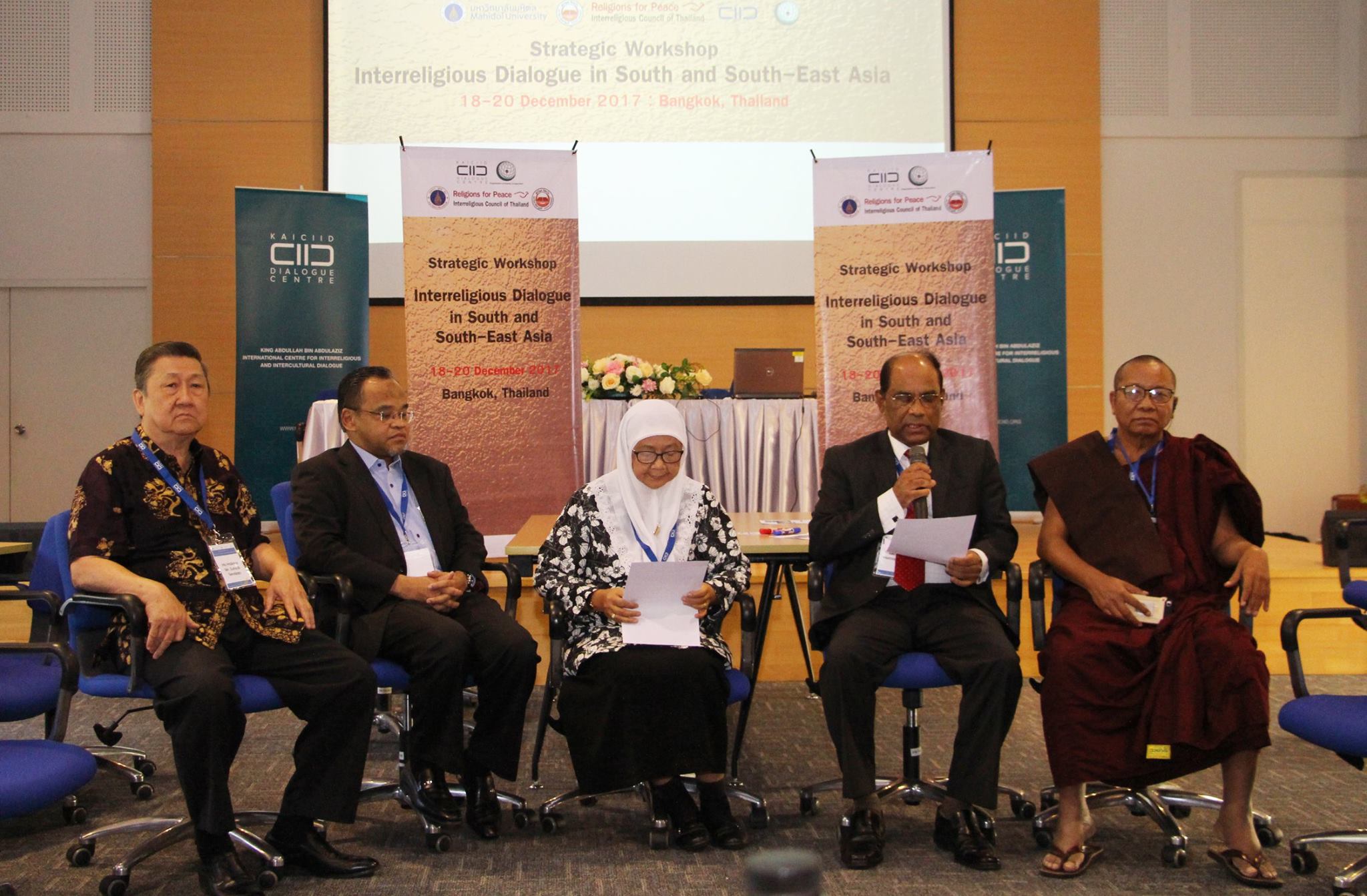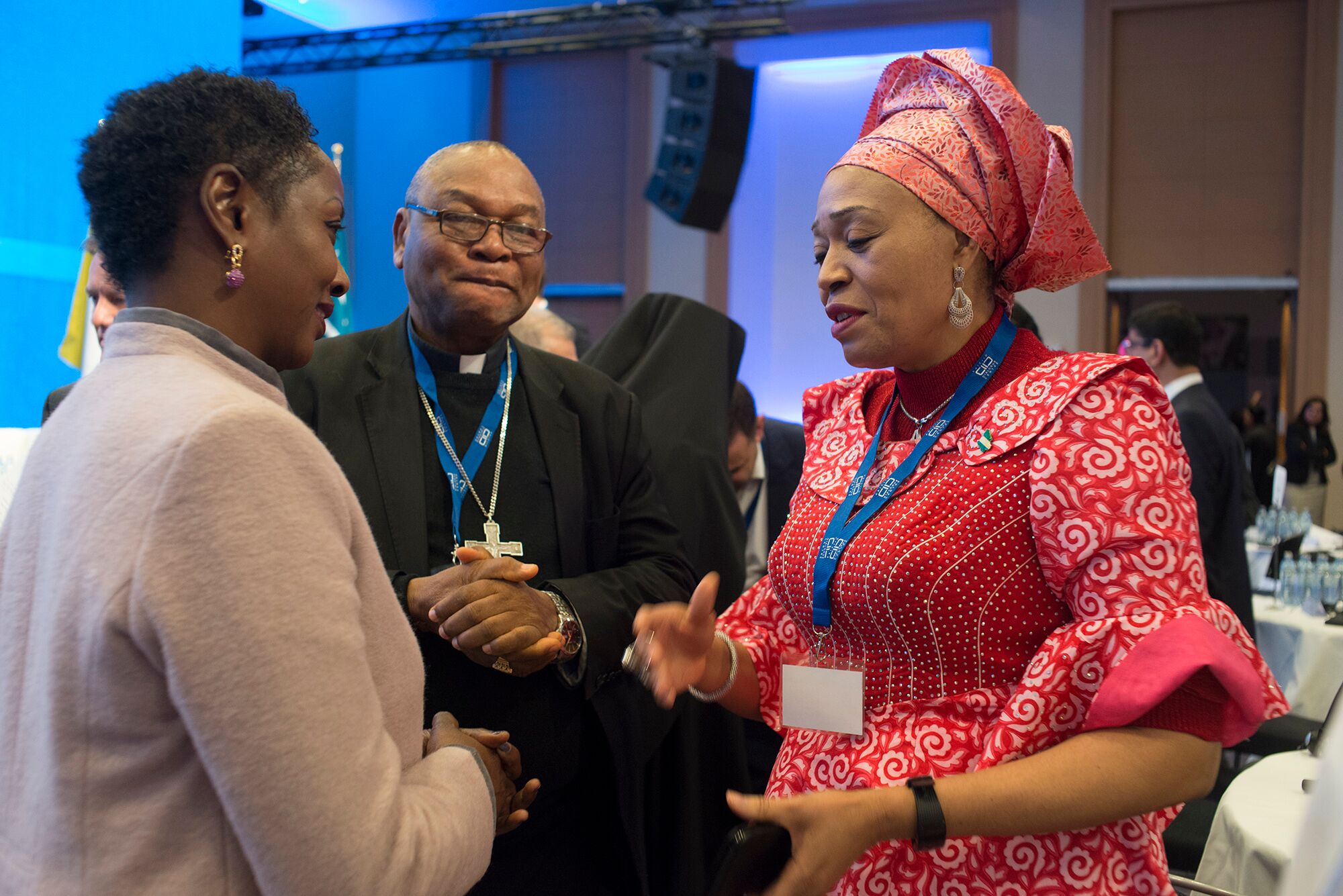Joint Bangkok Declaration

Through the joint initiative of the International Dialogue Centre (KAICIID), the Organization of Islamic Cooperation (OIC), the Interreligious Council of Thailand, Institute of Human Rights and Peace Studies-Mahidol University and Fatoni University, a strategic workshop was organized from 18-20 December 2017 in Bangkok, Thailand. The workshop brought together a unique mix of religious and civil society leaders, policy makers and government representatives to identify the challenges facing religious communities across South and Southeast Asia.
By eliciting from the participants contributions from a wide range of views, it was acknowledged that even though there are distinct religious differences, the challenges facing countries across the region are broadly similar. The propensity for such issues to spill-over from one country to another indicated the borderless nature of the region.
Some examples of common challenges which were highlighted include: the misunderstanding or distorted understanding of religion; the politicization of religion; rise of extremism and radicalization; the irresponsible use of media and social media in how religion is perceived in society; socio-economic inequity and marginalization,
In this regard participants agreed, in the spirit of unity, inclusivity, moderation, openness, mutual respect, and understanding to:
1. Encourage inter-religious and faith-based organizations as well as religious and traditional leaders to promote greater inter- and intra-religious dialogue for peaceful co-existence, harmony, and development in South and Southeast Asia.
2. Call for the development of a broader range of capacity building activities including awareness raising and training programs designed to promote skill building in inter- and intra-religious dialogue, conflict resolution, mediation and policy advocacy. Ensure that such programs are inclusive and provide for the participation of youth and women.
3. Call upon governments and agencies to mainstream curriculum designs, content development, and educational practices and put in place mechanisms that actively promote inter-faith coexistence and multicultural understanding.
4. Advocate and positively contribute towards the establishment and strengthening of policies and institutional frameworks designed to promote local, national and regional reconciliation.
5. Encourage the sharing of best practices throughout the region for enhancing inter-faith coexistence
6. Work together in the spirit of mutual cooperation, respect and understanding to enhance partnership amongst inter-religious and faith-based organizations, as well as religious and traditional leaders with policy makers in the region.
Call upon all participants to actively pursue, in partnership with like-minded organizations, the implementation of this joint statement.

